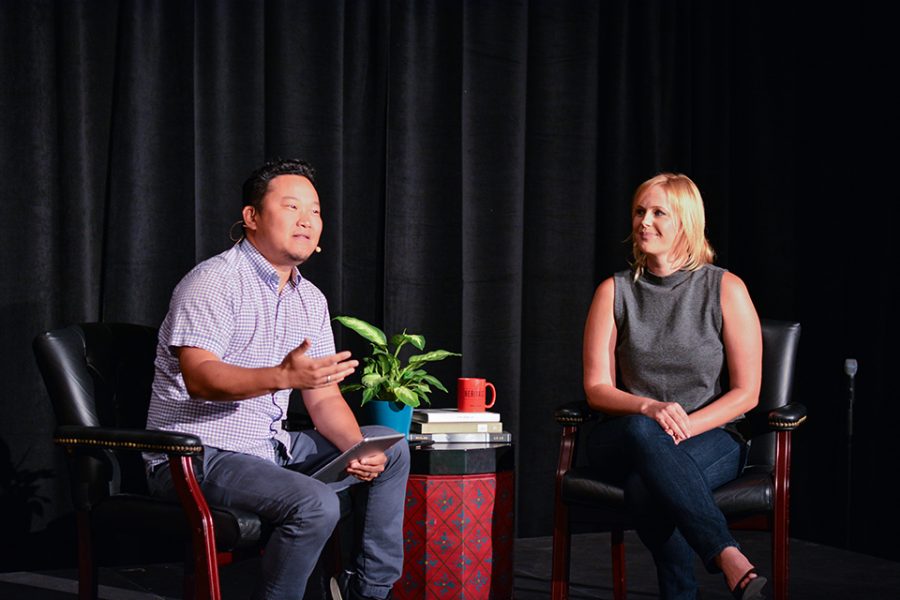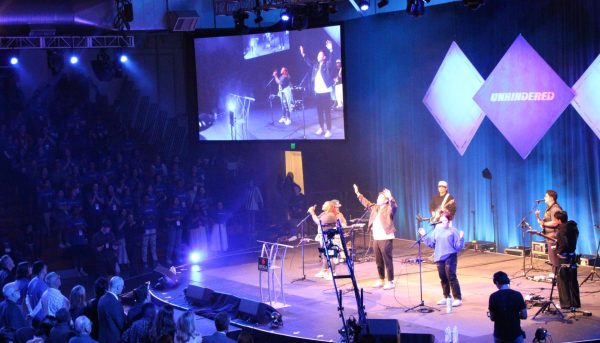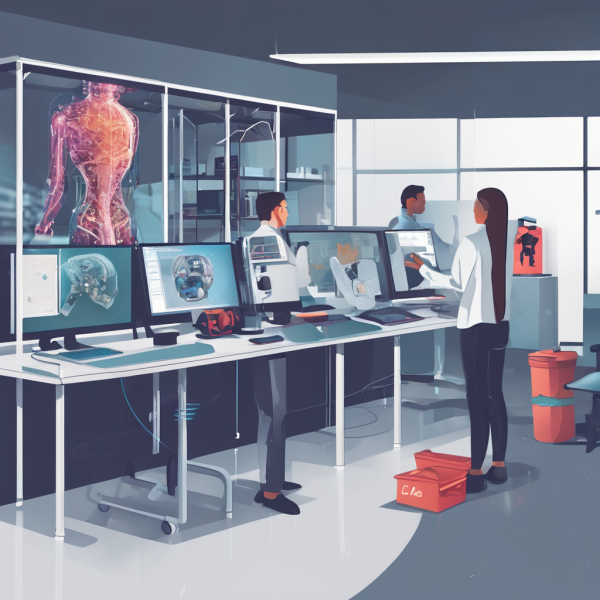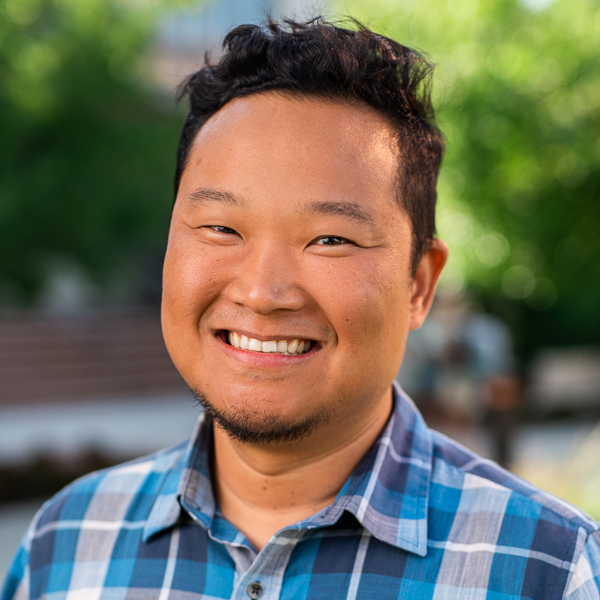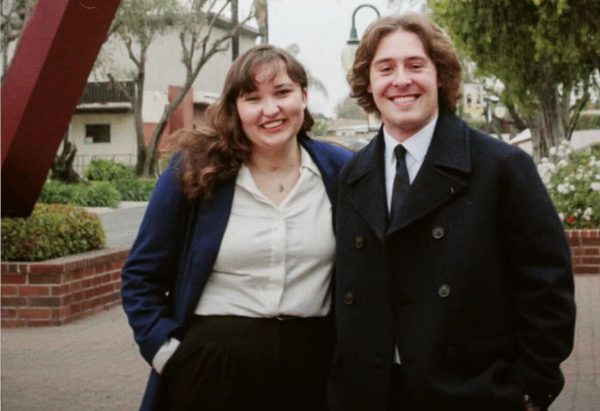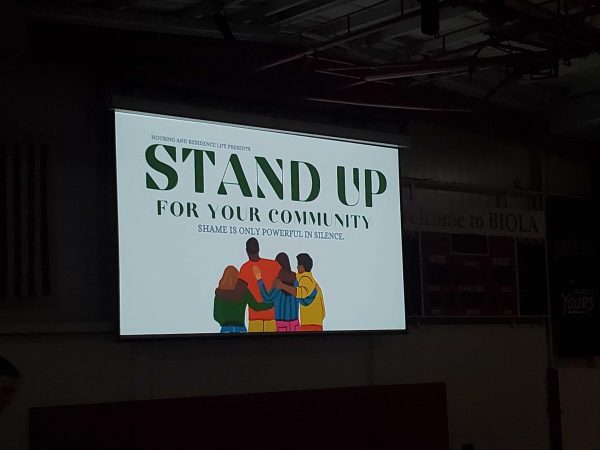The hour has come
During Friday chapels, now called the Biola Hour, students engage in a discussion-lead program on cultural issues.
September 12, 2016
In an attempt to promote thoughtfulness and engage different cultures and audiences, Friday morning chapels now talk about culturally relevant issues.
Promote thoughtfulness
The new chapel is called the Biola Hour, in reference to Biola’s radio station, which ran from 1922 to 1992. The radio program often shared Bible teachings students learned in their courses, but this new chapel hopes for students to engage in an interactive and discussion-oriented way, said Mike Ahn director of worship and formation.
“If I think about our college students, it’s more like you guys kind of grew up in a narrative culture rather than a didactic culture, and it’s more about story, more of a holistic understanding of things, so [I] wanted to promote thoughtfulness and I wanted to promote good question asking and integrative learning practices even in a big mass setting like a chapel,” Ahn said.
In an effort for students to immediately receive the message in a different way, the gym arrangement has removed the bleachers and created a separate stage on the left side of the gym for Ahn and the guest speaker. Another difference from other chapels includes the hope for podcasts with music overlays and voice-overs, but for now the unedited videos are posted on Open Biola.
As Ahn picks the topics and guests for each chapel, he picks issues which he feels students need to care about or already care about and chooses people he can easily dialogue with for now, eventually hoping to add off-campus guests. Students also have the chance to create dialogue by asking questions through social media or email in the second half of chapel.
Cultivation of good questioning
“I like that it’s a question… and response format because I think the questions that the host Mike Ahn asks are ones the students have and of course the students send in their own questions. So the relevance of it is almost immediate because these are the questions students have around these topics,” said Todd Pickett, dean of spiritual development.
In allowing students to ask questions, Ahn hopes for the cultivation of good questioning, including being aware of their audience. Junior philosophy major Jana Kukla enjoys the covering of different topics and allowing students to voice their questions.
“One of the main things I really love about it is that they allow students to put in questions that are relevant and that are answered on the spot. And honestly, one thing that’s kind of been encouraging with the student questions is just seeing that Biola’s students are even thinking in that way and have that depth of thought and have these concerns,” Kukla said.
The new Biola Hour allows students to engage with the topics, while the original Biola Hour spent thirty minutes daily sharing Biblical teachings. The station was the first solely religious radio station in the United States and strongest radio broadcast tower west of the Mississippi. Although the station took many risks, it provided great exposure for Biola with stations all over the country, said Art Black, the director of the Biola Hour from 1982 to 1991.
“The Biola Hour was cutting edge back then, it’s like that was the new technology and they took advantage of that,” Ahn said. “That’s something… in chapels we want to keep pushing, we want to be a little bit more cutting edge with using technology, but using a different format even like this to be able to engage with our audience a little bit more.”


